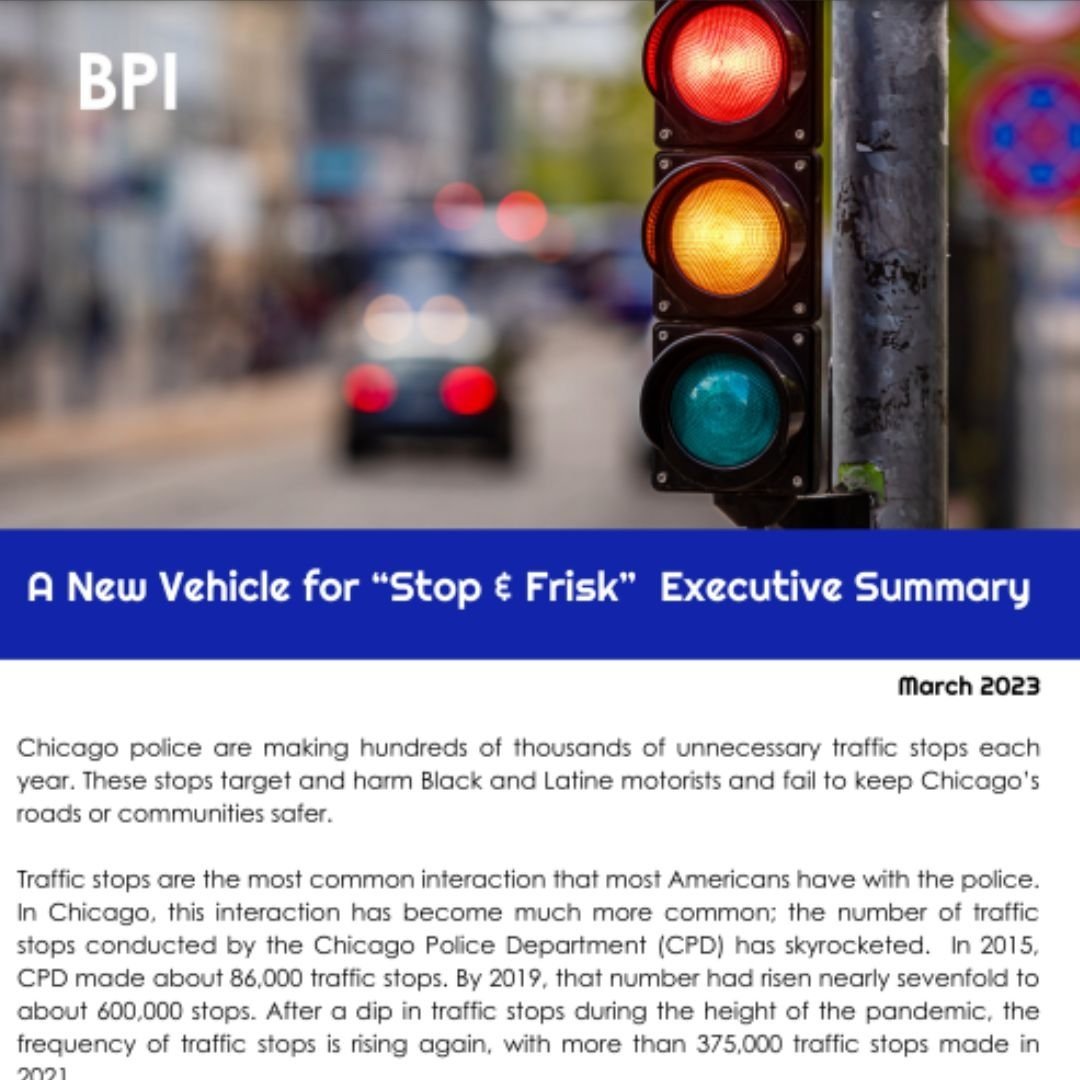
Data
Traffic Stops
Police officers across this country regularly pull over drivers based on the color of their skin. This statement may surprise some. For communities of color across the United States, getting stopped for “driving while Black” is commonplace. Traffic stops have led to some of the most tragic instances of police violence committed against Black people in this country.
The law currently grants officers the power to conduct a traffic stop as long as they have cause to believe the driver violated a traffic law. This means an officer can stop a driver for a minor traffic violation when their true motivation is to question, harass, or investigate that driver (or passengers) about some other crime. This practice, known as making a “pretextual stop,” gives police officers broad discretion.
The Chicago Police Department in recent years has turned to conducting massive amounts of pretextual traffic stops, disproportionately targeting Black and Latine drivers. These stops have significant negative impacts:
individual- and community-level psychological harm;
further sow distrust between residents and law enforcement;
unnecessary legal system involvement;
the propensity to escalate into violence; and
burdensome fines and fees for drivers.
While causing considerable harm, traffic stops fail to address the true roots of crime and traffic hazards in Chicago, the systemic disinvestment in communities and infrastructure on the South and West sides of the city.
Traffic Stop Report
Traffic Stop Report Update
Police District Traffic Stop Data Fact Sheets
Traffic Stop Report: Executive Summary
Traffic Stop Report Update: Appendix
Traffic Stop Data: Presentation
Traffic Stop Data: Dashboard
-

Bike Stops
Bike ticketing is concentrated in majority-Black and Latine communities in Chicago.
-

Jaywalking Stops
Across the country, data show stops for jaywalking have been enforced disproportionately against Black and Brown people.








